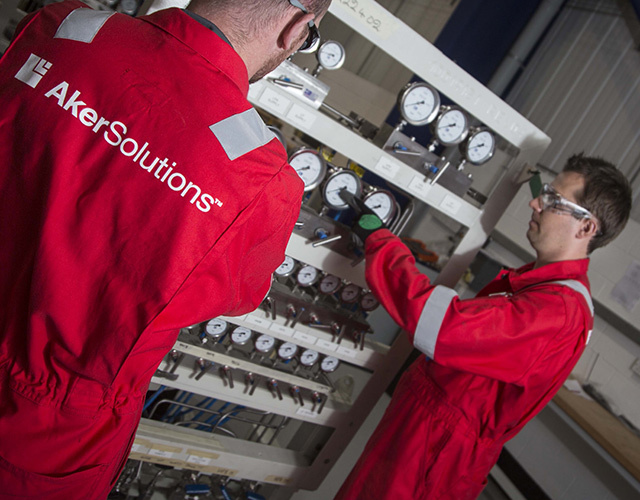
Billionaire Kjell Inge Roekke, who controls Norway’s biggest oil-services company and its second- largest crude producer, is looking to make more deals as plunging prices force consolidation.
Aker ASA, Roekke’s holding company, will use transactions more actively in the coming years, Chief Executive Officer Oeyvind Eriksen said today. Aker is encouraged by the success of recent deals such as Det Norske Oljeselskap ASA’s $2.7 billion purchase of Marathon Oil Corp.’s Norwegian unit, he said. Det Norske is 50 percent owned by Aker.
“There will be consolidations and structural changes because of the downturn, especially in oil and gas,” he said in an interview after Aker reported a 7.5 percent decline in third- quarter net asset value. “That means opportunities.”
A 30 percent drop in crude prices since June has reinforced a push by oil companies to cap spending, damping demand for services from offshore engineering firms and platform builders such as Aker-controlled Aker Solutions ASA and Kvaerner ASA. Halliburton Co. and Baker Hughes Inc., two of the biggest oil- services companies, announced yesterday they are in merger talks, showing the consequences of the downturn.
Roekke’s Aker has already orchestrated signficant changes in the industrial companies it controls over the past six months. The Marathon deal, financed through new debt and equity, transformed Det Norske into Norway’s second-biggest listed oil producer. Aker Solutions in September split in two, and Kvaerner is considering strategic changes that could include new owners.
Aker’s companies have strong balance sheets, significant borrowing abilities and financial flexibility to make deals, Eriksen said. He declined to be more specific on what type of transactions they should pursue.
While the downturn has “absolutely” created a buyers’ market, increased deal activity is also positive for Akastor ASA, the investment company that emerged from the Aker Solutions split and is mandated to create value for shareholders through deals, Eriksen said.
The new Aker Solutions, though “attractive” in the eyes of companies besides Aker, shouldn’t let higher transaction activity remove its focus from improving operations and profitability, Eriksen said.
There are no signs that talks between Halliburton and Baker Hughes will change an alliance that Aker Solutions has with the latter on subsea production, Eriksen said.
“It’s always exciting to see what happens to a partner and what further opportunities it can create for our common alliance,” he said.
Aker, which has more than 50 percent of its assets in the oil and gas industry, earlier today said net asset value fell 7.5 percent in the third quarter to 22.3 billion kroner ($3.9 billion). The shares dropped as much as 3.6 percent and pared losses to trade 0.3 percent lower at 166.50 kroner by 1:39 p.m. in Oslo.
Aker has the capacity for both new investments and maintaining its policy of paying annual dividends equivalent to 2 percent to 4 percent of net asset value, Eriksen said during the presentation. The company also has an intention to increase nominal payments every year, meaning the dividend for 2014 could be higher than 4 percent of net asset value, depending on the stock-price performance of its portfolio, he said.
Recommended for you
